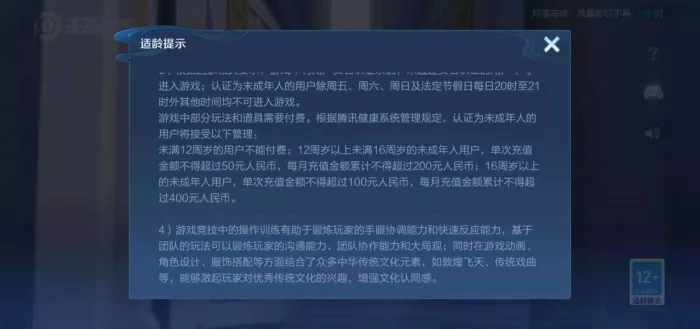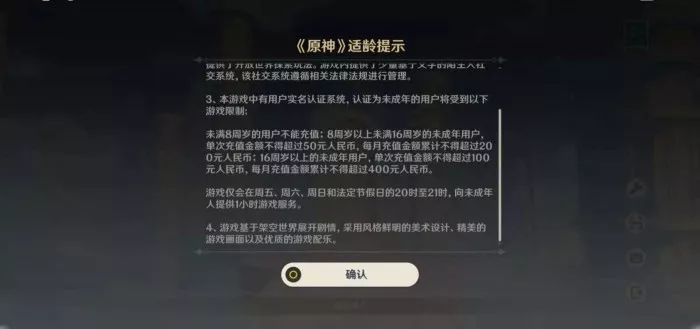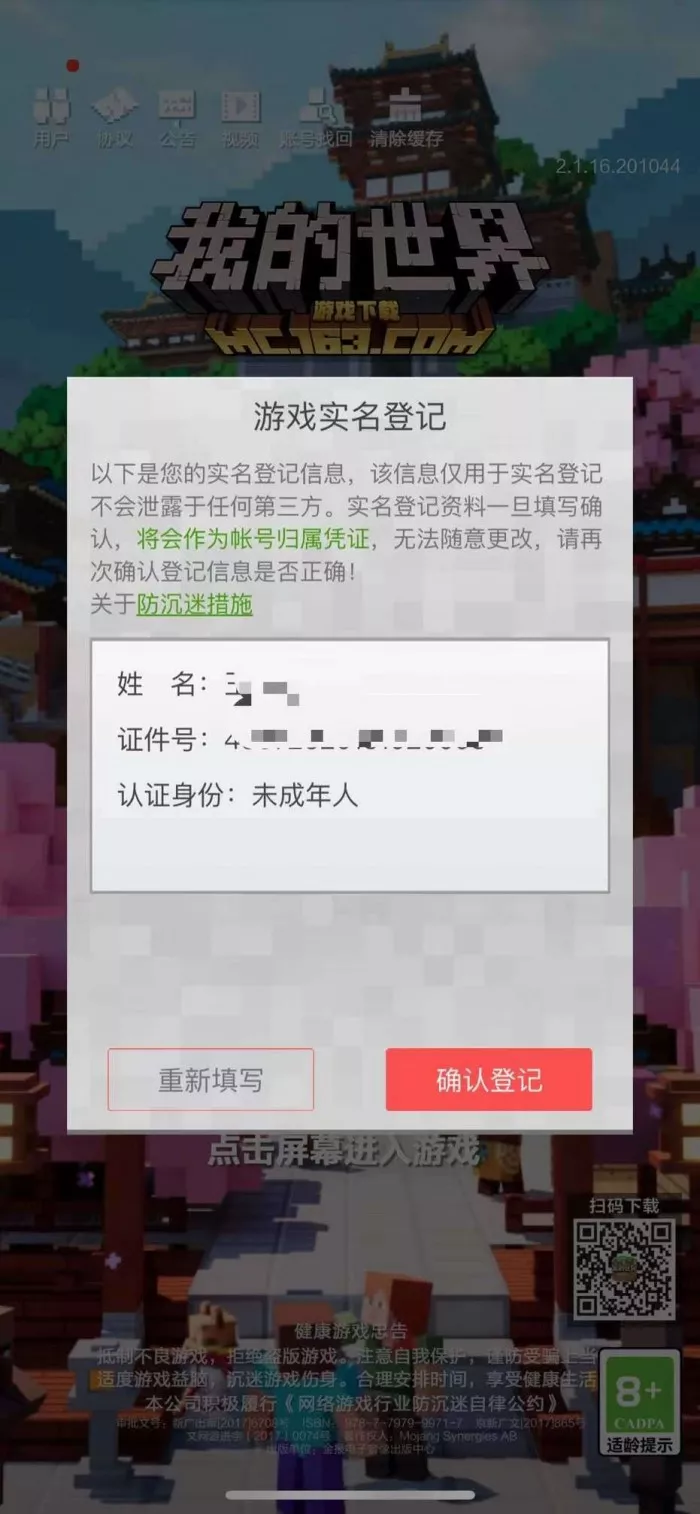Over the past year, Wufeng, a citizen of Beijing, can finally stop worrying about his son's addiction to playing mobile games. Wufeng's son is in junior high school. Due to the restriction of the anti addiction system, he can only play mobile games from 20:00 to 21:00 on Fridays, Saturdays, Sundays and legal holidays. In Wu Feng's view, the youth mode has helped a lot. "Now he can only play for 3 hours a week within the specified time, so he has more time to study and play basketball.".

On June 1 this year, the newly revised law on the protection of minors was put into effect for one year. The teenagers' mode of letting minors avoid internet addiction is a mandatory requirement of this law, and it is also the main mode of Internet protection for minors at present, which greatly promotes and protects minors' healthy use of the Internet. According to the 49th statistical report on the development of China's Internet released by China Internet Network Information Center (CNNIC) in February this year, the length of online game use and payment of underage users have decreased significantly.
Compared with the "youth model", Professor Lin Wei, vice president of the University of the Chinese Academy of Social Sciences, prefers to call it the "juvenile model". Lin Wei pointed out that in recent years, the minors' mode of network service has been gradually improved and perfected in terms of system construction and practical application, and has made important progress, showing the governance mode with Chinese characteristics. Looking forward to the future, the further refinement and implementation of the minors' mode will become the most important construction direction of China's minors' network protection.
The effect of preventing from indulging in online games is remarkable
According to the 2020 National Research Report on the use of the Internet by minors, the number of minors in China will reach 183million by 2020.
In order to solve the problem that minors are addicted to online games, the newly revised law on the protection of minors adds a special chapter on "network protection", which makes targeted provisions on the Internet Information Department and other relevant departments, network products and service providers and other subjects.
In response to the problem of minors' online addiction and excessive consumption of games, the State Press and Publication Administration issued the notice on further strict management and practical prevention of minors' addiction to online games. In response to the problem of minors' excessive use or even addiction to online games, the State Press and publication administration further tightened management measures, resolutely prevented minors from indulging in online games, and effectively protected minors' physical and mental health.

For minors' addiction to social software, short videos, online games, etc., relevant online products and service providers have launched and upgraded anti addiction systems in accordance with legal requirements.
Tencent has set up and upgraded the youth model on wechat, QQ and other platforms. For example, a new function of "Guardian authorization" has been added to wechat. Parents can manage their children's use of wechat through this function. After this function is enabled, teenagers can apply for guardian authorization remotely to access official account articles, applets, links and extend the use time of video ID. guardian can authorize the application remotely through personal wechat account.
Since last September, Tiktok has launched strict youth addiction prevention measures on the platform. In the Tiktok youth mode, users can only use it for 40 minutes a day by default, and can't use it from 22:00 to 6:00 the next day. Tiktok's "same city" and "hot search" entrances will be hidden, and minors cannot use the private message chat and live broadcast functions, let alone recharge and reward.
In addition to implementing the notice on further strict management to effectively prevent minors from indulging in online games, a number of network products and service providers have also taken the initiative to take more measures to ensure the effect of anti indulging. Tencent game adopts a stricter face recognition scheme for larger head games - face recognition is required for real name users over 55 to log in every night game, so as to prevent minors from playing games with their parents' accounts or devices.
According to the public opinion ecological report of the game industry in 2021 released by the game Working Committee of the China audio and digital Association, the game addiction prevention measures in 2021 have achieved significant results. More than 80% of the parents interviewed said that their children's playing time has decreased to varying degrees, of which 43% thought it was "significantly reduced".

Increase of high-quality content in youth mode
A report released recently by the China Youth Research Center shows that nearly 70% of the minors surveyed have used short videos.
"While the short video platform enriches children's online entertainment, the entertainment, fragmentation and immersion of its own content have also brought many problems, which have brought new challenges to the short video platform, regulators and parents." Li Yingxin, member of the National Committee of the Chinese people's Political Consultative Conference and vice president of the Beijing Railway Transportation Intermediate Court (Beijing Fourth intermediate people's court), said.
During the first period of the youth mode, the video content under this mode was very boring.
Liyingxin noticed during the survey that most of the content pools under the youth mode are monotonous and boring. In order to avoid responsibility, some platforms directly display "no matching content for the time being" in the live broadcast part. During the survey, one student said frankly, "are you sure this is not the kindergarten mode? I am 14 years old, and I entered the youth mode. What I saw was the nursery rhyme video of 'swimming across a group of ducks under the bridge in front of the door'".
Liyingxin said that this "one size fits all" approach is not conducive to the growth of teenagers. It is suggested to enrich the content pool of the youth model. We should not only pay attention to the educational function of the network platform for minors, but also safeguard the right of minors to leisure and entertainment, so that children are more willing to use the youth model and benefit from it.
It is gratifying that with the efforts of all parties, the high-quality content under the youth model has become increasingly rich.
On May 31 this year, on the occasion of the 40th anniversary of the founding of the China Soong Ching Ling Foundation, the "master lecture for children" launched by the China Soong Ching Ling Foundation and Tencent launched the "June 1" science special, bringing children interesting popular science knowledge in aerospace, astronomy, medicine and other fields, and sharing the growth stories of famous scientists in science and medicine. This is the fourth time that the "master lecture for children" has been launched since last September.
In youth mode 4.0, Kwai has selected high-quality content in more than 40 fields, such as education, popular science, musical instruments and sports, and completed the review of more than 1.5 million videos, so that teenagers can learn knowledge and relax while watching videos.
Attach importance to risk prevention and promote development
In the information age, the protection of minors is more complex and arduous. There is a long way to go to create a healthy, safe and clean network environment for minors.
"Based on the complexity of the network environment, how to eliminate the various hazards faced by minors in the network environment, how to balance the relationship between the protection and development of minors, and how to protect the rights of minors in the network society, such as the right to exist, the right to develop, the right to be protected and the right to participate, are major topics that need long-term, continuous and in-depth research." Peng Ling, deputy director of the member Department of the China Law Society and an expert of the juvenile affairs governance and law research base of the China University of political science and law, said.
Lin Wei believes that when promoting the application of the minors' model, we should pay attention to its functions of risk prevention and promoting development.
"At the level of risk prevention, the minors' model has played a positive role in preventing harmful infringement, but efforts should be made to improve the reliability and effectiveness of the model's bad information isolation and addiction prevention functions. Network products and service providers should ensure that the minors' model is simple and easy to use, is not broken at will, and is presented in a significant way, which is easy to be perceived by users; at the level of promoting development, network products and services Service providers should take serving minors as the central idea, actively provide technologies, products and services that are appropriate to the physical and mental characteristics of minors, so that the content under this mode can effectively promote the development of minors and improve their network literacy. " Linwei said.
Over the past year, all relevant departments and units have taken positive action, followed the legislative concept of the newly revised law on the protection of minors, formulated supporting systems, implemented specific provisions and achieved fruitful results. For example, the family education promotion law, as an important law in the legal system for the protection of minors, makes provisions to teach minors to surf the Internet healthily, prevent bullying, and prevent minors from indulging in the Internet.
In order to further strengthen the network protection of minors, the relevant systems continue to be improved. Wang Yang, director of the working young women's office of the Social Construction Committee of the National People's Congress, said that as a supporting system for the "network protection" chapter of the law on the protection of minors, the regulations on the protection of minors' networks, which was drafted by the central Internet Information Office and participated in by the Central Committee of the Communist Youth League, is entering the final review and reform stage. After the promulgation of the regulations, it will provide more detailed and operable normative guidance for the protection of minors' networks.